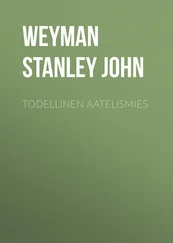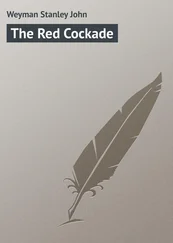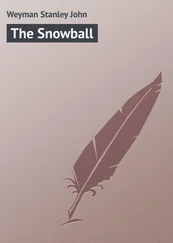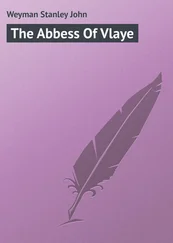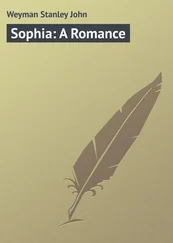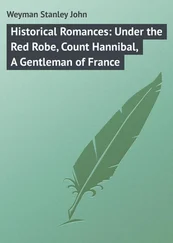Stanley Weyman - The Great House
Здесь есть возможность читать онлайн «Stanley Weyman - The Great House» — ознакомительный отрывок электронной книги совершенно бесплатно, а после прочтения отрывка купить полную версию. В некоторых случаях можно слушать аудио, скачать через торрент в формате fb2 и присутствует краткое содержание. Жанр: foreign_language, foreign_prose, на английском языке. Описание произведения, (предисловие) а так же отзывы посетителей доступны на портале библиотеки ЛибКат.
- Название:The Great House
- Автор:
- Жанр:
- Год:неизвестен
- ISBN:нет данных
- Рейтинг книги:4 / 5. Голосов: 1
-
Избранное:Добавить в избранное
- Отзывы:
-
Ваша оценка:
- 80
- 1
- 2
- 3
- 4
- 5
The Great House: краткое содержание, описание и аннотация
Предлагаем к чтению аннотацию, описание, краткое содержание или предисловие (зависит от того, что написал сам автор книги «The Great House»). Если вы не нашли необходимую информацию о книге — напишите в комментариях, мы постараемся отыскать её.
The Great House — читать онлайн ознакомительный отрывок
Ниже представлен текст книги, разбитый по страницам. Система сохранения места последней прочитанной страницы, позволяет с удобством читать онлайн бесплатно книгу «The Great House», без необходимости каждый раз заново искать на чём Вы остановились. Поставьте закладку, и сможете в любой момент перейти на страницу, на которой закончили чтение.
Интервал:
Закладка:
It seemed as if he had done. He was silent; his hearers waited. Then with an effort he continued:
"I have a word to say about something which fell from me in this place last week. While I did not venture, unskilled as I am, to say where lies the cause of our distress, I did say that I found it hard to believe that the system which taxes the bread you earn in the sweat of your brow, which takes a disproportionate part from the scanty crust of the widow and from the food of the child, was in accordance with the law of love. I repeat that now; and because I have been told that I dare not say in the pulpit of Riddsley church what I say here, I shall on the first opportunity state my belief there. You may ask why I have not done so; my answer is, that I am there the representative of another, whereas in this voluntary work I am myself more responsible. In saying that I ask you to judge me, as we should judge all, with that charity which believeth no evil."
A moment later Mary, deeply moved, was passing out with the crowd. As she stood, caught in the press by the door, an old man in horn-rimmed glasses, who was waiting there, held out his hand. She was going to take it, when she saw that it was not meant for her, but for the young clergyman who was following at her heels.
"Master, dunno you do it," the old fellow growled. "You'll break your pick, and naught gotten. Naught gotten, that'll serve. Your gaffer'll not abide it, and you'll lose your job!"
"Would you have me take it," the young man answered, "and not do the work, Cluff? Never fear for me."
"Dunno you be rash, master!" the other rejoined, clutching his sleeve and detaining him. "You be sure-"
Mary heard no more. She felt Etruria's hand pressing her arm. "We'd best lose no time," the girl whispered. And she drew Mary onward, across the triangle and into the lane which led to the moor.
"Are we so late?" The sun had set, but it was still light. "We'd best hurry," Etruria persisted, increasing her speed.
Mary looked at her and saw that she was troubled, but at the moment she set this down to the influence of the sermon, and her own mind went back to it. "I am glad you brought me, Etruria," she said. "I shall always be glad that I came."
"We'd best be getting home now," was Etruria's only answer, but this time Mary's ear caught the sound of footsteps behind them, and she turned. The young clergyman was hastening after them.
"Etruria!" he cried.
For a moment Mary fancied that Etruria did not hear. The girl hurried on. But Mary saw no occasion to run away, and she halted. Then Etruria, with a gesture of despair, stopped.
"It is no use," she said.
The young man came up with them. His head was bare, his hat was in his hand, his long plain face was aglow with the haste he had made. He had heard Etruria's words, and "It is of every use," he said.
"This is-my mistress," Etruria said.
"Miss Audley?"
"I am Miss Audley," Mary announced, wondering much.
"I thought that it might be so," he replied. "I have waited for such an occasion. I am Mr. Colet, the curate at Riddsley. Etruria and I love one another," he continued. "We are going to be married, if ever my means allow me to marry."
"No, we are not," the girl rejoined sharply. "Mr. Colet knows my mind," she continued, her eyes turned away. "I have told him many times that I am a servant, the daughter of a servant, in a different class from his, and I'll never be the one to ruin him and be a disgrace to him! I'll never marry him! Never!"
"And I have told Etruria," he replied, "that I will never take that answer. We love one another. It is nothing to me that she is a servant. My work is to serve. I am as poor as it is possible to be, with as poor prospects as it is possible to have. I shall never be anything but what I am, and I shall think myself rich when I have a hundred pounds a year. I who have so little, who look for so little, am I to give up this happiness because Etruria has less? I, too, say, Never!"
Mary, standing between them, did not know what to answer, and it was Etruria who replied. "It is useless," she said. And then, in a tone of honest scorn, "Who ever heard," she cried, "of a clergyman who married a servant? Or who ever heard of good coming of it?"
Mary had an inspiration. "Does Etruria's father know?" she asked.
"He knows and approves," the young man replied, his eyes bent fondly on his mistress.
Mary too looked at Etruria-beautiful, patient, a servant, loved. And she wondered. All these weeks she had been rubbing elbows with this romance, and she had not discerned it! Now, while her sympathies flew to the lover's side, her prejudices rose up against him. They echoed Etruria's words, "Who ever heard of good coming of such a match?" The days had been, as Mary knew, when the chaplain had married the lady's maid. But those days were gone. Meantime the man waited, and she did not know what to say.
"After all," she said at last, "it is for Etruria to decide."
"No, it is for us both to decide," he replied. And then, as if he thought that he had sufficiently stated his case, "I ask your pardon, Miss Audley, for intruding," he continued. "I am keeping you, and as I am going your way that is needless. I have had a message from a sick woman, and I am on my way to see her."
He took permission for granted, and though Etruria's very shoulders forbade him, he moved on beside them. "Conditions are better here than in many places," he said, "but in this village you would see much to sadden you."
"I have seen enough," Mary answered, "to know that."
"Ten years ago there was not a house here. Now there is a population of two thousand, no church, no school, no gentry, no one of the better class. There is a kind of club, a centre of wild talk; better that, perhaps, than apathy."
"Is it in Riddsley parish?" Mary asked. They were nearly clear of the houses, and the slopes of the hill, pale green in the peaceful evening light, began to rise on either side. It was growing dusk, and from the moorland above came the shrill cries of plovers.
"Yes, it is in Riddsley parish," he answered, "but many miles from the town, and as aloof from it-Riddsley is purely agricultural-as black from white. In such places as this-and there are many of them in Staffordshire, as raw, as rough, and as new-there is work for plain men and plain women. In these swarming hives there is no room for any refinement but true refinement. And the Church must learn to do her work with plain tools, or the work will pass into other hands."
"You may cut cheese with an onion knife," Etruria said coldly. "I don't know that people like it."
"I know nothing better than onions in the right place," he replied.
"That's not in cheese," she rejoined, to Mary's amusement.
"The poor get little cheese," he said, "and the main thing is to cut their bread for them. But here I must leave you. My errand is to that cottage."
He pointed to a solitary house, standing a few score paces above the road on the hillside. Mary shook hands with him, but Etruria turned her shoulder resolutely.
"Good-bye, Etruria," he said. And then to Mary, "I hope that I have made a friend?"
"I think you have," she answered. "I am sure that you deserve one."
He colored, raised his hat, and turned away, and the two went on, without looking back; darkness was coming apace, and they were still two miles from home. Mary kept silence, prudently considering how she should deal with the matter, and what she should say to her companion. As it fell out, events removed her difficulty. They had not gone more than two hundred yards, and were still some way below the level of the Chase, when a cry reached them. It came out of the dusk behind them, and might have been the call of a curlew on the moor. But first one, and then the other stood. They turned, and listened, and suddenly Etruria, more anxious or sharper of eye than her mistress, uttered a cry and broke away at a run across the sloping turf towards the solitary cottage. Alarmed, Mary looked intently in that direction, and made out three or four figures struggling before the door of the house. She guessed then that the clergyman was one of them, and that the cry had come from him, and without a thought for herself she set off, running after Etruria as fast as she could.
Читать дальшеИнтервал:
Закладка:
Похожие книги на «The Great House»
Представляем Вашему вниманию похожие книги на «The Great House» списком для выбора. Мы отобрали схожую по названию и смыслу литературу в надежде предоставить читателям больше вариантов отыскать новые, интересные, ещё непрочитанные произведения.
Обсуждение, отзывы о книге «The Great House» и просто собственные мнения читателей. Оставьте ваши комментарии, напишите, что Вы думаете о произведении, его смысле или главных героях. Укажите что конкретно понравилось, а что нет, и почему Вы так считаете.

